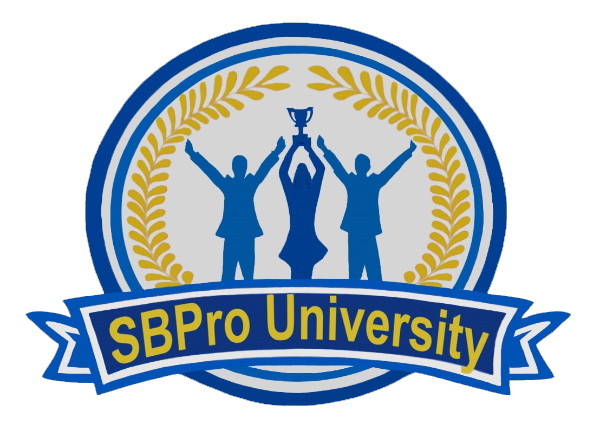The Power of Quizzes in Understanding Your Clients
I'm thrilled to share with you a thought-provoking conversation with Catharine O'Leary, affectionately known as the "Quiz Lady." The episode delves into the strategic use of quizzes for market research and client engagement, emphasizing the importance of asking better questions to attract more clients. This blog post will break down the key insights from the episode, offering actionable advice and expert recommendations to help entrepreneurs enhance their marketing strategies and build stronger client relationships.
The Quiz Lady
Catharine O'Leary, the "Quiz Lady," joins the discussion, sharing her unique journey to becoming an expert in using quizzes for market research and client engagement. With a master's degree in economics and over 30 years of experience in corporate market research, Catharine has worked with major companies like Pepsi, Apple, and Adobe. She explains that her role involved asking insightful questions to understand consumer behavior and preferences, which ultimately informed product innovation and marketing strategies.
The Importance of Market Research
Understanding Client Needs
Catharine emphasizes the importance of identifying the "3 AM question"—the pressing concern that keeps potential clients awake at night. By framing marketing messages around these critical questions, businesses can attract the right audience. She notes that most people do not wake up thinking about optimizing a quiz funnel; instead, they have deeper, more personal concerns that need addressing. By using language that resonates with clients, businesses can effectively filter out those who are not a good fit.
Building Relationships
Both Andrew and Catharine agree that marketing should focus on building relationships rather than being purely transactional. Catharine notes that the landscape of marketing has shifted, with consumers becoming more discerning and less responsive to aggressive sales tactics. She likens the current marketing environment to proposing marriage on a first date, emphasizing the need for businesses to foster trust and rapport with their clients.
Listening to Client Feedback
It's not enough to ask questions; entrepreneurs must also actively listen to the responses they receive. Catharine stresses the importance of using the information gathered from quizzes and other feedback mechanisms to make informed decisions about marketing strategies and product offerings. By co-creating with clients based on their input, businesses can enhance their relevance and appeal.
The Role of Quizzes in Client Engagement
Utilizing Quizzes Effectively
Quizzes can serve as an effective tool for gathering information about clients' needs and preferences. Catharine suggests that quizzes should not merely be seen as lead capture mechanisms but as opportunities to engage with clients meaningfully. By designing quizzes that encourage participation and provide valuable feedback, businesses can better understand their audience and tailor their offerings accordingly.
Qualifying Leads
Catharine explains that it’s essential to attract the right clients while also recognizing that not everyone will be a match. She advocates for a strategy where businesses can attract their ideal clients and gently repel those who are not suited for their offerings. This approach saves time for both parties and ensures that the focus remains on those who genuinely need the services provided.
Practical Implementation
Andrew and Catharine discuss practical steps for implementing quizzes in a business context. They recommend starting with a simple word document to outline questions before selecting a quiz platform that fits the business's needs and budget. Popular platforms like TryInteract and JotForm can help entrepreneurs create engaging quizzes that capture valuable data.
Timing for Email Collection
When it comes to collecting email addresses through quizzes, Catharine advises waiting until the end of the quiz to ask for this information. By allowing participants to complete the quiz first, businesses can ensure they are engaging with individuals who are genuinely interested in their offerings. This approach also helps to filter out those who may not be serious about their engagement.
Best Practices for Creating Quizzes
Intentional Questioning
Each question should serve a purpose, helping to guide the client from their problem to the solution offered by the business. Catharine outlines several best practices for designing effective quizzes:
Clarity and Simplicity: Questions should be straightforward and easy to understand, ideally framed at a fifth-grade reading level.
Engaging Hooks: The first question should be a discovery question that piques interest, encouraging participants to continue through the quiz.
Avoid Overloading: Quizzes should not be overloaded with questions or complex ideas. Instead, they should focus on essential information that can drive meaningful insights.
Question Types
The episode concludes with a discussion on the types of questions that work best in quizzes. Catharine suggests using a mix of multiple-choice, yes/no, and open-ended questions, depending on the information needed. However, she cautions against using too many open-ended questions, as they can complicate data analysis.
Conclusion
This blog underscores the significance of asking better questions and conducting thorough market research to attract more clients. Andrew and Catharine's discussion highlights the need for entrepreneurs to prioritize relationship-building in their marketing efforts and leverage tools like quizzes to gain a deeper understanding of their clients' needs. By doing so, businesses can enhance their marketing strategies, improve client engagement, and ultimately drive growth and profitability.
By focusing on the concerns that truly matter to potential clients, businesses can create more effective marketing strategies and foster stronger relationships with their audience. This episode serves as a reminder that success in business often hinges on understanding and responding to the needs of clients, rather than relying on assumptions.
The recording of my entire Livestream with Catharine O'Leary, on the Small Business Pro University YouTube Channel…


